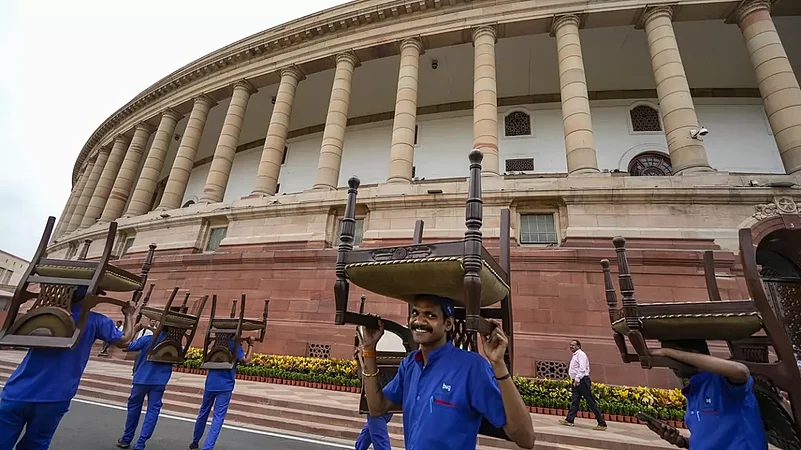The Parliament on Wednesday cleared Digital Personal Data Protection Bill 2023.
The bill was passed by Rajya Sabha with a voice vote following a walkout by the opposition members over the Manipur issue, PTI reported.
Earlier, the Lok Sabha had passed the bill on Monday.
What is Digital Personal Data Protection Bill 2023?
The bill which comes after six years of the Supreme Court declaring "Right to Privacy" as a fundamental right has provisions to curb the misuse of individuals' data by online platforms.
The report quoting Union Minister Ashwini Vaishnaw said the bill lays down obligations on private and government entities around collection and processing of citizen's data.
“The bill seeks to protect the privacy of Indian citizens while proposing a penalty of up to Rs 250 crore on entities for misusing or failing to protect the digital data of individuals,” the report said.
Moving the bill for consideration and passage in the Upper House of Parliament, Union IT Minister Ashwini Vaishnaw said, "It would have been good had the opposition discussed the bill today (in the House). But no opposition leader or member is concerned over the rights of the citizens."
He said the bill has been brought after extensive public consultation.
Underscoring the salient features of the bill, he said its language is very simple so that even a common person can understand it.
Referring to certain principles on which the bill is based, Vaishnaw said that according to the principle of legality, data of a person has to be taken based on prevailing laws and cannot be used for purpose beyond which it has been collected.
Motion to send the bill to the select committee of Parliament by Rajya Sabha member John Brittas and V Sivadasan was not moved due to their absence in the house when the bill was put for vote.


























